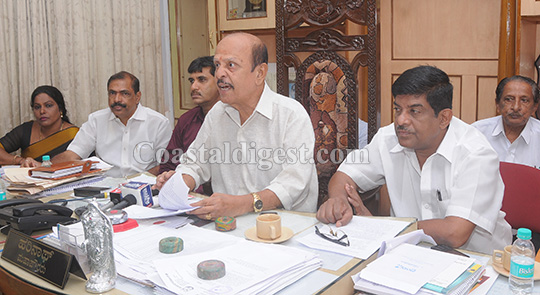Mangaluru, Jul 20: The Mangaluru City Corporation (MCC) is moving towards declaring the city open defecation. According to Mayor Harinath all houses in the city will have toilets and new public toilets will come up in 34 locations by October 2 when the city will be formally declared open-defecation free.
Mr Harinath told presspersons here on Wednesday that as per a survey carried out in May 2015, there were 339 houses in the city which did not have toilets.
Grants were being given to these residents to construct toilets under the Swachh Bharath Mission. While around 10 wards would be declared open-defecation free on August 15, the whole city would be declared so on October 2, he said.
Mr. Harinath asked people, who did not have toilets for their houses, to approach the Mangaluru City Corporation for grants by August 13. He said they were yet to decide on the penal action to be taken against those seen defecating in the open after October 2.
Chairman of Standing Committee on Health, Kavita Sanil, said that corporation had identified places such as the City Central Market, Pumpwell Junction, Morgan's Gate, Urwa Stores, Kadri Junction and 29 other locations where new toilets would be constructed.
These toilets would be built and operated by private agencies and it would be in addition to the 21 existing ones. Those operating the existing pubic toilets had been directed to maintain them in a proper manner, she said.
Mr. Harinath said that Urban Development Minister R. Roshan Baig would lay the foundation stone for construction of a dining hall for the Town Hall on Sunday.
Mr. Baig would also launch the first phase of building market complexes in Alake and Kavoor. The Minister would inaugurate the work on improving Kavoor Junction.
He would inaugurate the new night shelter in Bunder area, which had been built at a cost of Rs. 99.8 lakh, Mr. Harinath said.





Comments
Defecation ? First you build some toilets for urination please,
Add new comment